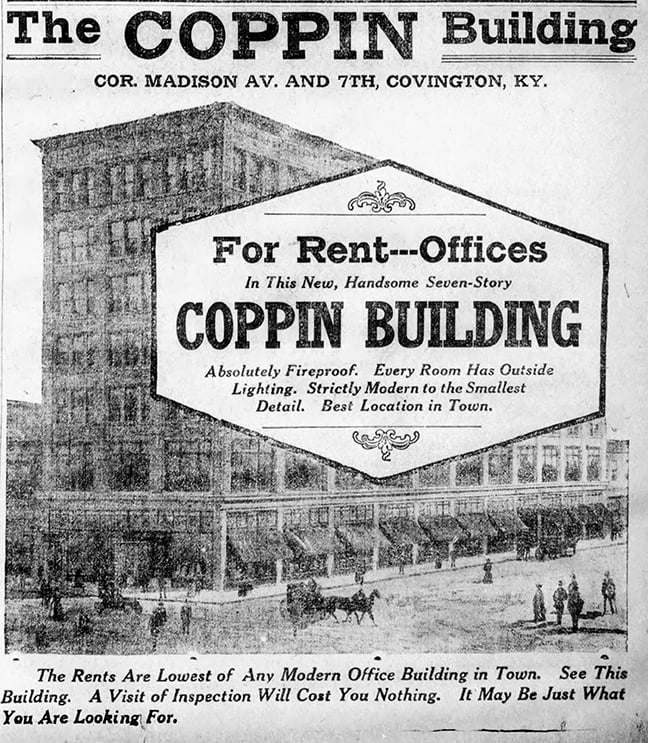Dr. Clark Kebodeaux
University of Kentucky
The fall season has officially begun, and that means an increase in viral respiratory illnesses, otherwise known as the “common cold.” There are many viruses that can cause colds, but it is important to understand that more severe respiratory viruses, including influenza (flu), SARS-CoV-2 (known as COVID-19), and respiratory syncytial virus (RSV) can cause ‘cold-like’ symptoms but may cause more severe illness.

Flu, COVID-19, and RSV have vaccines that are available to lower your risk of serious illness — these immunizations with good hygiene practices can help protect you and those you love. Additionally, it is important to seek care if you have risk factors for serious illness and some examples are included below.
You may be wondering what medicine you should take if you just have the common cold. Going into a pharmacy and seeing the sheer number of cold medicines on the shelves can be overwhelming. Your pharmacist and other health care providers can help you select the right medication as well as the correct dose, especially for children. Here is some helpful information about some over-the-counter medications and when it’s most appropriate to use them.
Symptoms: fever, headache, body aches
Pain relievers can help reduce a fever, ease headaches and soothe body aches that often accompany the common cold. Common pain relievers in cold medicine include:
• Ibuprofen (Advil) is a non-steroidal anti-inflammatory drug (NSAID) and is available over-the-counter. As an NSAID, ibuprofen can also help reduce inflammation in the body. Additionally, naproxen (Aleve) is another NSAID available overn the-counter that can be dosed less frequently throughout the day.
• Acetaminophen (Tylenol) works as a fever reducer and pain reliever, but works differently than NSAIDs. It helps reduce fever and treats mild-to-moderate pain, but and may be an option for patients who shouldn’t take NSAIDs due to heart or kidney disease.
Your pharmacist or health care provider may recommend that you alternate what sort of pain reliever you take – however, it is important to follow the directions on the label to ensure you don’t exceed to the appropriate dose. Just ask!
Symptoms: Stuffy nose, headache from congestion
Decongestants help clear out a stuffy nose by reducing the swelling in your nasal passages, making it easier to breathe. Common active ingredients include:
• Pseudoephedrine (Sudafed), phenylephrine (Sudafed PE) and guaifenesin (Mucinex) are available in tablet form. Note that buying pseudoephedrine requires purchasing from a pharmacy showing a legal ID and there is a monthly limit on how much you can purchase.
• In 2023, experts working with the food and drug administration (FDA) found that phenylephrine may not be effective in oral tablets or liquids, but is effective in nasal sprays. However, most nasal sprays available OTC are not meant to be used for the common cold, and are not recommended for this purpose.
Decongestants help reduce swelling by restricting blood vessels, so they may not be appropriate for people with high blood pressure. Talk with your doctor before taking.
Symptoms: Runny nose, sneezing, watery eyes
Antihistamines help dry up a runny nose, prevent sneezing or relieve itchy eyes by blocking histamines in the body. Note: taking these medications alone is not effective in reducing runny nose (rhinorrhea) or sneezing due to colds. These may be combined with other products, and it is important to tell your pharmacist if you take other medication(s) for allergies. Common active ingredients include:
• Chlorpheniramine (Chlor-Tabs, Aller-Chlor), diphenhydramine (Benadryl), and doxyamine (Zzzquil). These medications may be effective in certain situations but usually cause notable drowsiness and are not appropriate for everyday use.
• Loratadine (Claritin), cetirizine (Zyrtec), and fexofenadine (Allegra) are available to help reduce allergy symptoms but may not help with the common cold. Many medications are listed with multiple brand names, so it is important to check the label closely and ask for help when selecting a final product.
Symptom: Cough
Suppressants and expectorants can help with coughing symptoms; however, they have not been as effective in treating the “common cold.” Many of these products are available as tablets, capsules, liquids, and in combination with other products:
• Dextromethorphan (Tussin, Delsym, and dozens of other name brands) is used to help relieve a dry, nagging cough, especially if this is interfering with sleep. Often, medications containing dextromethorphan will often have DM listed on the label, but not always.
• Guaifenesin (Mucinex) helps by thinning and loosening mucus in your airway, making it easier to expel. This may help when you have a “productive” cough and it is indicated for short-term cough use—not chronic coughs or coughs due to other lung disease.
Choosing the right medication
All patients with symptoms of the common cold should get plenty of rest and stay hydrated. If you experience trouble breathing or fast breathing, dehydration, fever that lasts longer than four days, symptoms over 10 days, or general worsening of your health conditions, seek care as soon as possible.
Generally, there is no cure for the cold, but over-the-counter medicine containing these medications may help you feel better. Remember that these medications only treat the symptoms, not the illness itself – unfortunately, only time and rest will help your immune system fight off a common cold. Before purchasing, think through the symptoms you want to relieve, and speak with a pharmacist or health care provider if you’re unsure which medicine might work best for you.
Dr. Clark Kebodeaux, Pharm. D., is a clinical pharmacist and clinical associate professor in the University of Kentucky College of Pharmacy





















